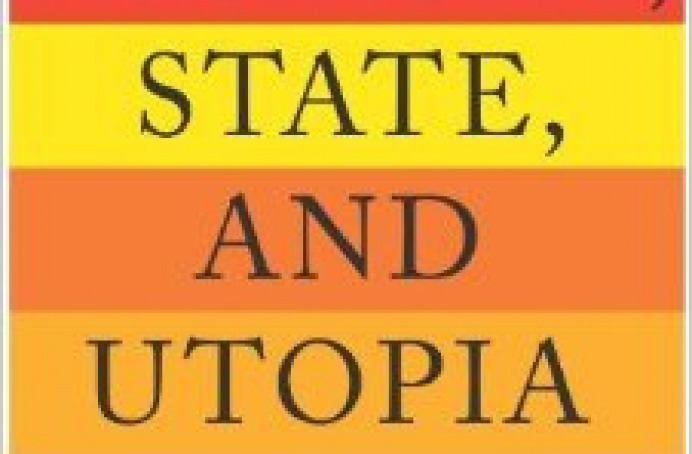Book

Anarchy, State, and Utopia
Translated into 100 languages, winner of the National Book Award, and named one of the 100 Most Influential Books since World War II by the Times Literary Supplement, Anarchy, State and Utopia remains one of the most theoretically trenchant and philosophically rich defenses of economic liberalism to date, as well as a foundational text in classical libertarian thought. With a new introduction by the philosopher Thomas Nagel, this revised edition will introduce Nozick and his work to a new generation of readers.
aboutLiberty Portal
Liberty Portal is your gateway for free markets and free thinking. We aggregate open-sourced content to promote and popularize important people and lessons within the liberty movement.
suggested
Thomas Gordon
Parent Effectiveness Training (P.E.T.)

P.E.T. began over 45 years ago as the first national parent-training program to teach parents how to communicate more effectively with kids and offer step-by-step advice to resolving family conflict so everybody wins. This beloved classic is the most studied, highly-praised, and proven parenting program in the world -and it will for you.
Read moreThis ground-breaking book will show you:
- How to avoid being a permissive parent.
- How to listen so kids will talk to you and talk so kids will listen to you.
- How to teach your children to "own" their problems and to solve them.
- How to use the "No-Lose" method to resolve conflicts.Using the timeless methods of P.E.T. will have immediate results: less fighting, fewer tantrums and lies, no need for punishment. Whether you have a toddler striking out for independence or a teenager who has already started rebelling, you'll find P.E.T. a compassionate, effective way to instill responsibility and create a nurturing family environment in which your children will thrive.
Michael Huemer
The Problem Of Political Authority

The state is often ascribed a special sort of authority, one that obliges citizens to obey its commands and entitles the state to enforce those commands through threats of violence. This book argues that this notion is a moral illusion: no one has ever possessed that sort of authority.
Read more
Designs for Health
Vitamin D Supreme 5000 IU

- Upgrade Your Vitamin D K - Each small easy-swallow capsule features clinically relevant amounts of bioavailable vitamin d3 (5000 IU), combined with 2000 mcg of vitamin K1 and K2. GG is also included as a complementary bone and immune supportive compound.* (Note: This product has been reformulated to include more vitamin K and GG).


